Ben G. is a High School teacher in Toronto. He teaches history, social science and drama. He first traveled with EF in 2010. He believes that experiencing other parts of the world helps us to better understand the vastness of the human experience. This in turn helps us to build our capacity for empathy, compassion, and ultimately, informed civic action.
This spring, I traveled to Europe with students and educators from three schools in the Toronto District School Board to study the history of Jewish life in Europe and the Holocaust. This trip was for students who were currently taking, or had taken, an elective course on Genocide and Crimes Against Humanity. Using the pedagogical methods of Facing History and Ourselves, we learn about difficult historical case studies in order to help students become informed and active citizens. I’ll be honest, this trip experience was a difficult one, intellectually and emotionally, but ultimately rewarding and enriching for myself and my students. Perhaps your tour is not going to visit places like Dachau, Auschwitz, or other museums and memorials dedicated to those murdered by the Nazis, but any successful Group Leader can follow some of these universal guidelines for a successful trip. A trip as a piece of lifelong learning doesn’t end once the tour does. Here are some of the invaluable lessons I’ve learned on my EF tours.
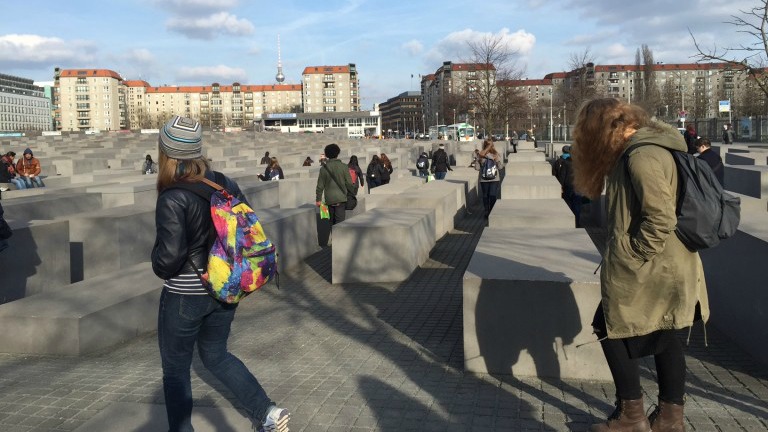
Via Ben G.
Have your trip goals in mind and get support
What do you want your tour experience to be about? Think and talk about this one for a while. Start the process on your own so you have a solid vision for what you want to accomplish, then bring your colleagues into the conversation. Make sure to leave space for their vision and ideas! For me, traveling with students is about providing them with an educational experience they could not get on their own. When I build and plan trips like this in partnership with EF, the level of buy-in from students, parents, administrators, colleagues and the community at large is phenomenal. A trip with great purpose inspires participation on many levels. Know your “why”.
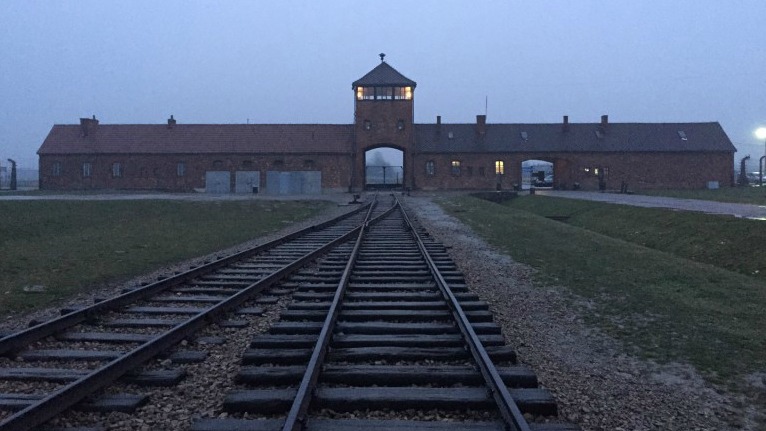
Via Ben G.
Know your place(s)
What do you want your students to take away from this experience? How can you best build the experience to give students the opportunity to have a lifelong takeaway? Once you have a rough outline of where you are going and what you want the trip experience to be about, do your research! Even if you’re traveling on a planned itinerary, it helps for you to research each place you’re going so you can be informed about possible activities you and your group may want to participate in during free time.
I worked with my EF Tour Consultant, Jon, to help plan a customized tour itinerary. My tour started in Munich then traveled to Prague, Krakow, Warsaw, and Berlin. Keeping the purpose of the trip in mind, and the fact that European geography doesn’t always make planning easy, we started in Munich to learn about the rise of Hitler and the Nazis, and continued onward. It’s also important to make sure there’s a mix of things to do, so that the emotional intensity of the trip is varied. For instance, Prague gave us a bit of a fun break and an emotional ‘breather’ after the heaviness of our visit to Auschwitz-Birkenau. In every city we visited, the kids experienced history and were able to better grasp the enormity of what happened better than they ever could by simply reading about it in history books. But the itinerary doesn’t just include what we do while we’re on the trip…it starts at home, maybe even up to a year or more before you actually travel!
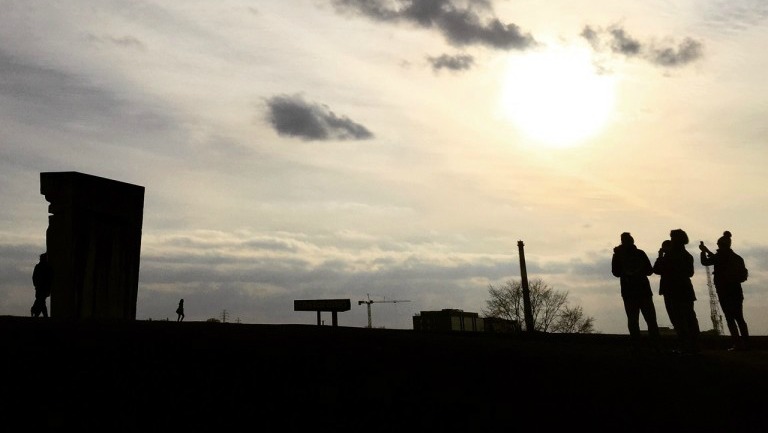
Via Ben G.
Always be prepared
Preparing yourself, your colleagues, chaperones and your students properly for their travel experience is vital in the process of getting the most out of the trip. For my tour, we had a few meetings to get to know each other, engage in conversation and reflect on our expectations for the trip–building relationships and rapport that we would rely on when traveling together and studying difficult history.
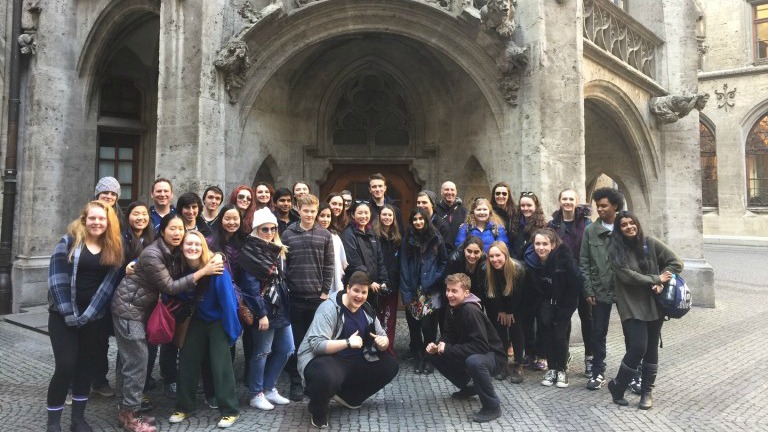
Via Ben G.
It’s not about you, it’s about your students
On this trip, I had to keep in mind the emotional well-being of 30 students. I can get a bit excited about all the things I think we should do, so my trip colleagues were invaluable in reminding me that we needed adequate break time. Although most of my trip was pre-planned, it’s crucial to provide students with free time to experience cities and culture. Whenever we were able to build in some free time for students to stretch their wings a bit, we did. A key part of this process is checking in with students regularly to see how they’re adjusting to the new time zone, food, culture, or anything else that may come up being far away from home–sometimes for the first time. Your compassion, patience and empathy will go a long way and be appreciated by your students (and their parents!)
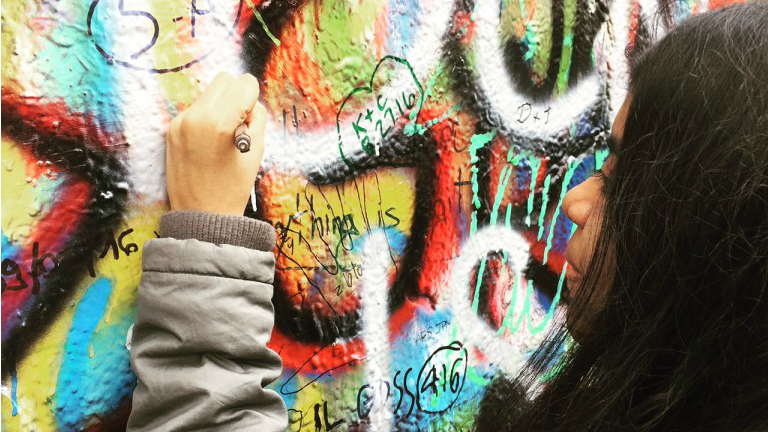
Via Ben G.
Reflect early and reflect often
During your tour, reflecting upon an experience as individuals and as a group is crucial. Individual conversations with students give you insight into their experience and your own. It also demonstrates that you value their thoughts and ideas. In large groups, have questions planned and give students the opportunity and space to share what they are thinking and feeling. This allows for students to interact with members of the group that might not have and for the group to build a more nuanced understanding of their experience as a whole. Writing in a journal is equally an important part of reflection, especially for students who are not as verbal as others.
The second aspect of reflection takes place after returning home. One month after we return, my group gathers to hear from a Holocaust survivor and share our travel experiences as a group and as individuals with parents, teachers, administration, and the community. Each student, or group of students, creates a memorial of some kind to represent their learning while on the trip.
By giving time and attention to these 5 steps, you will be better able to ensure that your trip experience is truly one of lifelong learning.
Ready to show your students the world? Connect with an EF Tour Consultant!
Related articles
